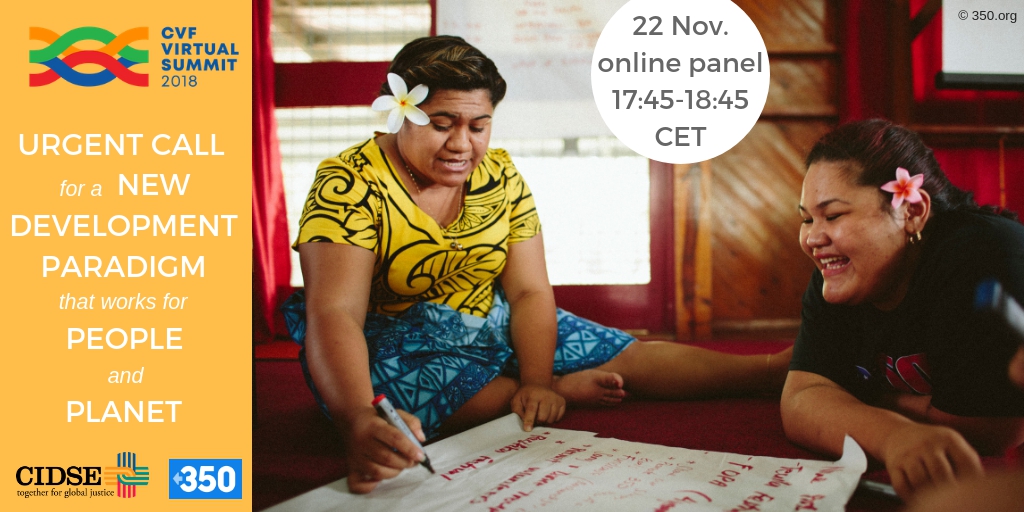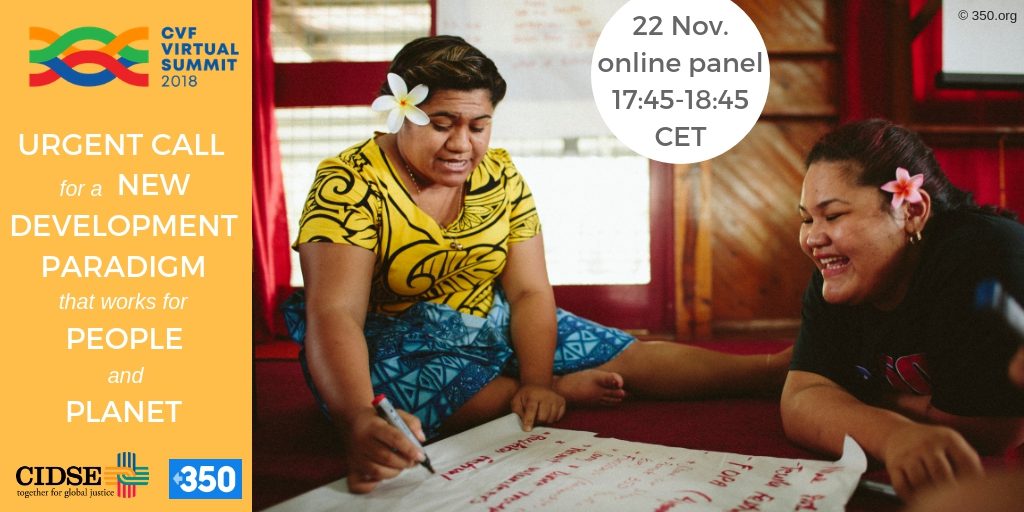
Communities are responding to climate change with integral solutions that tackle the systemic origin of the issue. Watch our panel at the Virtual Climate Summit webpage on 22 November from 17:45 to 18:45 CET.
The Virtual Climate Summit is an innovative climate conference conducted entirely online that encourages global inclusivity while avoiding the carbon emissions of travellers to a physical meeting. The Summit is organized by the Climate Vulnerable Forum (CVF), a platform for international cooperation between governments from countries highly vulnerable to a warming planet.
The climate crisis is ultimately a consequence of unequal economic, social and political systems. The systemic nature of the causes of cilmate change requires a systemic response. Faith communities worldwide have been calling for systemic responses under the concept of ‘integral ecology’ established by Pope Francis. In the field of development, the application of integral ecology discredits false solutions that put humans at risk and degrade natural resources. Addressing climate change is indeed a matter of justice: securing and building the resilience of communities is about ensuring the rights for everyone to live in safe, fair and protected environment where no one is left behind. Equity and the principle of Common but Differentiated Responsibilities and Respective Capabilities (CBDR–RC) must be at the core of any climate policy.
The panel session aims at displaying people’s solutions and alternatives that work at the systemic scale we need, from decentralized community-owned renewable energy to agro-ecological methods. There already exist a wealth of proven ideas and experiences from which to build a global transformation, however many are the obstacles preventing the scaling up and out of such solutions and the panel will try to assess such challenges.
Moreover, the panel will particularly focus on the role of youth and faith groups in mobilizing for climate justice, calling for an “ecological conversion” that implies a strong commitment at all levels, and that address overconsumption and calls for a fair share of resources. Such voices have the strength to inspire the world’s leaders to take bolder actions and ramp up ambition.
Objectives of the panel:
- Highlight the links between climate and development issues and reiterate the importance of addressing multiple crises as one;
- Highlight the critical role of the youth and people of faith as key actors in civil society: movement building and connectors in the wider public opinion and civil society;
- Demonstrate that alternatives exist and solutions are already taking place in many parts of the world: focus on renewable energy systems and agroecology projects.
Speakers:
- H.E. Abune Tesfaselassie Medhin – Bishop of Ethiopian Catholic Eparchy of Adigrat in Ethiopia
- Prof. Olivier De Schutter – Co-Chair, International Panel of Experts on Sustainable Food Systems (IPES-Food)
- Mrs. Melania Chiponda – Energy and Climate Justice Campaigns Coordinator at WOMIN South Africa
- Joseph Sapati Moeono-Kolio – Youth Representative of the Pacific Climate Warriors

